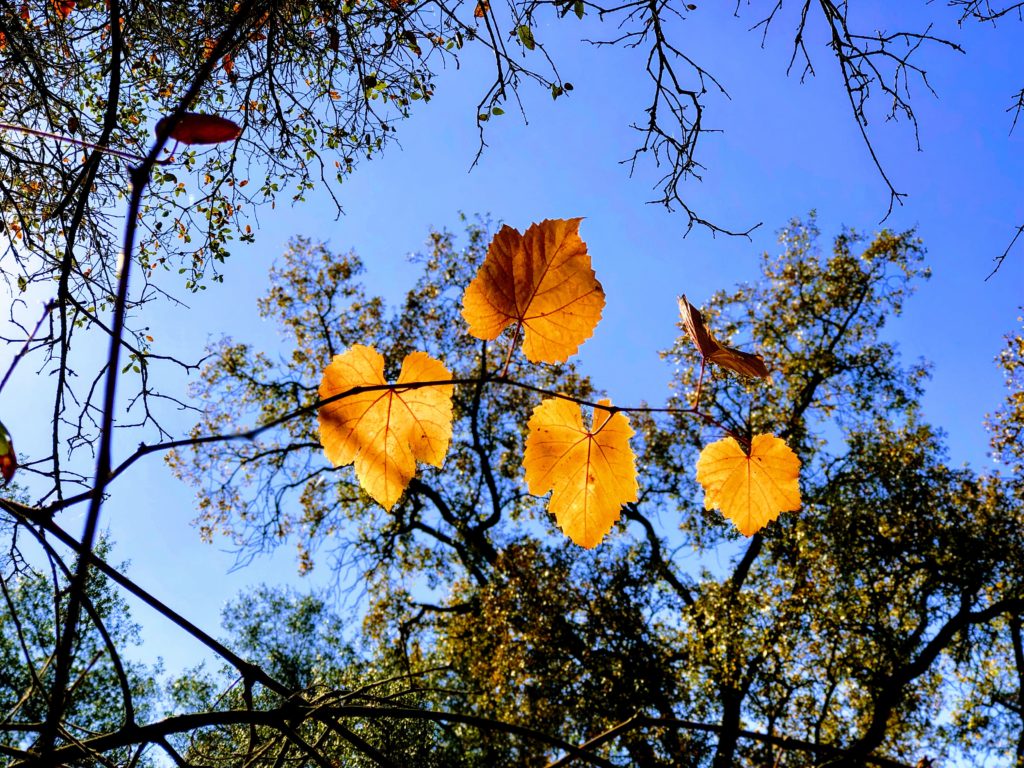Last night at some point, depending on your local time, was the autumnal equinox: the moment at which the night and the day were of equal length. Now night is longer. This means that, even though it was over 90 degrees today and the trees are looking more parched from drought than ready to turn colors, it’s fall.
The symbolism is there: dark and light are staring each other down, and for a moment last night in their thumb war it appeared that they were at a stalemate, but dark now is leaning over light, whose brow is growing sweaty with fatigue. But there is something comical about the idea of this cosmic battle, because it’s one that plays out annually by precise mathematical rules. We’ve had the game fixed for millennia, ever since we started clocking the heavens on our megaliths. Darkness, now holding the upper hand, will win until December 21st, when light will get a second wind and come charging back until June 21st, and so on. Just like every year, give or take a day or two, on whatever calendar you reckon by.
You might say that we don’t need to attach meaning to it. There’s no surprise left in the game. But we do. The seasons are alternating change and stasis, and every year it shows us a mirror on ourselves.
Summer, light’s realm, is the stasis of life. The leaves are out, their hands outstretched, dark green and stable. The bugs, in this part of the world, howl all day and night long. The heat looms in and sets up camp.
Winter is the stasis of darkness, silence, and death. The trees outstretch their skeleton hands to hover under the slate sky. The warm-blooded courie in to stay safe from dark and storms and cold.

The shoulder seasons, by contrast, are all movement and change. You can’t fix them, even for a day. Each week is different, for however long they last. In spring, the buds come out on their own secret schedule, and you miss them if you take a different path a few days in a row. The trees get that fuzz of infant green, and you almost wonder if you’re imagining it. When the sun is glaring in your eyes for the first time in months, you may wonder if you’re just overthinking some moss—but no, it’s a leaf, you find out soon enough, and then there are leaves as far as the eye can see.
I’ve always loved fall the best, at least in theory. I find its colors, its smells, the feel of its air on my face, quiveringly beautiful. It’s temporary, too, like spring. One day you’re looking out at the top of the hill and it looks just a little less green, and then all at once it shrieks into full yellow or sighs through brown, and it’s not all at once, but suddenly its over.
I’m sadder in fall, too, and I crave to love it so badly. Those things are probably connected. Spring is all improvement, the slow glimmer of a rising smile. Watch the light grow longer. Watch the greening. It’s all abundance—the promise of future abundance, which is the best kind, sweetest of all in the imagination. And your imagination goes wild, waiting for warm summer nights on the patio, waiting to get your toes in the water.
And fall is the opposite of this, which is the paradox of abundance and scarcity all at once. There is only so much more time before the leaves are past their peak, and are gone. There is only so much time until the biting cold will stretch out its arms and stay for a while. But for now there is the harvest, the scenery, the delicious smell of wood smoke and leaf mold on the air. Pumpkin flavored everything; pumpkins on your paper towels. Time to get out the spooky socks and the right kind of crisp in the air to put them on. And crisps—yes, do you bake? Now you do: apple crisps, and pumpkin cheesecake bars, and lumpy-crusted pies.
The changing of the seasons is such a forced reflection on time. Seasonal time is inherently objective, and yet inherently subjective. There’s the objective amount of time the summer lasts—one looks at a calendar for that, June to September. There’s the objective, but unknowable, amount of time that summer weather lasts—check the forecast, make some predictions. But the way that I will feel about summer on a certain date? I often catch myself in the feeling that I didn’t quite do it up all the way—fewer weekly cookouts, trips to the beach, hot nights on a rooftop, than I anticipated from my perch in chilly winter. Scarcity, again. The feeling that I wasn’t there. And now the nights are coming sooner and it might finally begin cooling off, I can’t do it until next year.
What a strange way to live a life, I realize, fussing at the map rather than the territory.
But now the ticking experience clock is turning to fall. So I get the urge to gather, to binge on experience, to check things off like a squirrel gathering nuts, because it will soon be gone for so long. That kind of frantic demand for enjoyment, the harvest urge, is strongest in fall.
Gather ye cider donuts while ye may,
Old Time is still a-flying;
And this same jack-o-lantern that smiles today
Tomorrow will be dying.
Basically, I love fall, even if you could say it triggers me. But I’m celebrating the beginning of the season the best way I know how: with an inaugural apple cider, wearing some flannel quite by coincidence, with a candle burning, surrounded by my decorative gourds, welcoming it in.
Lovely!
Pingback: Still sun | PsychoPomp